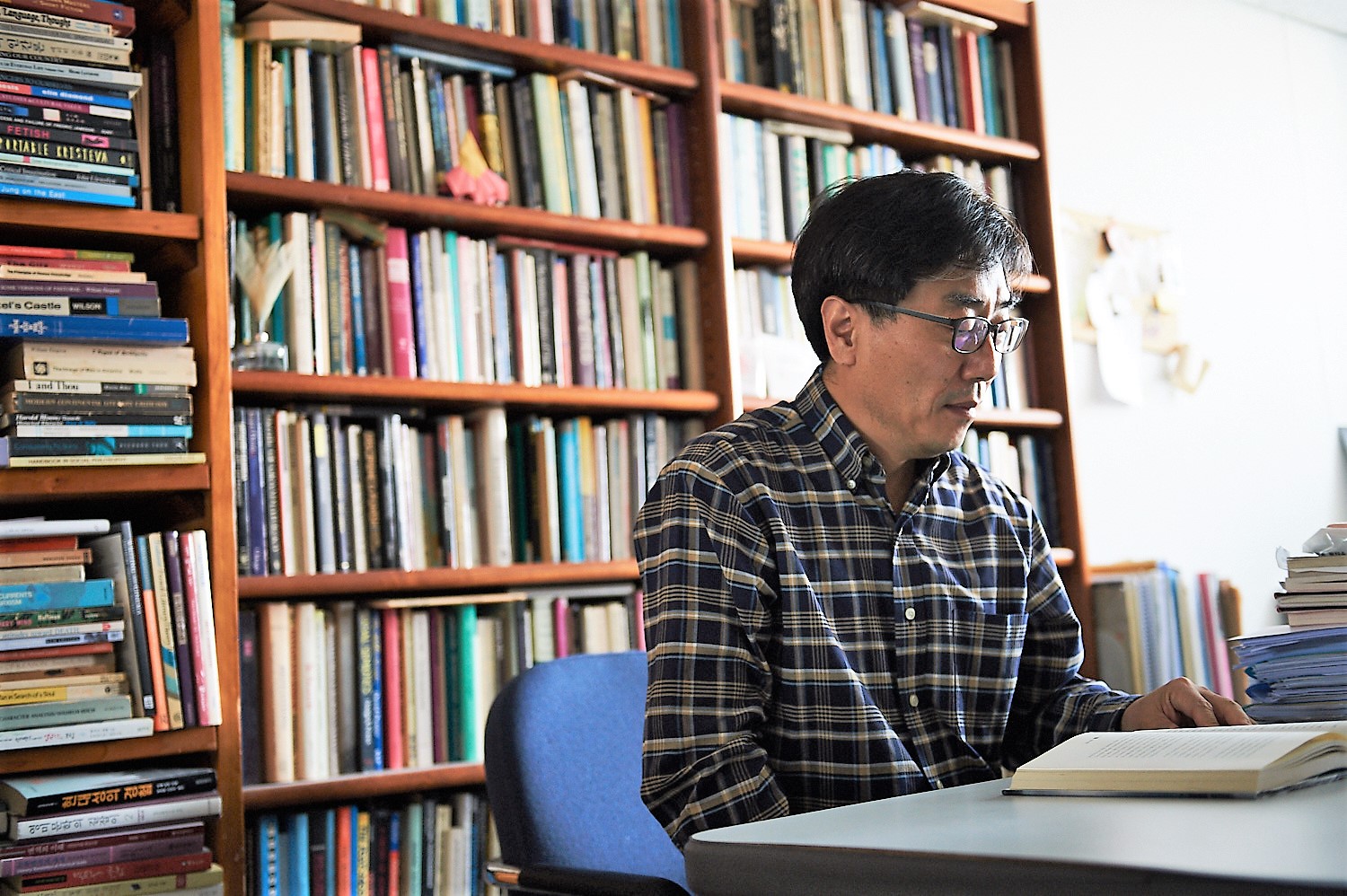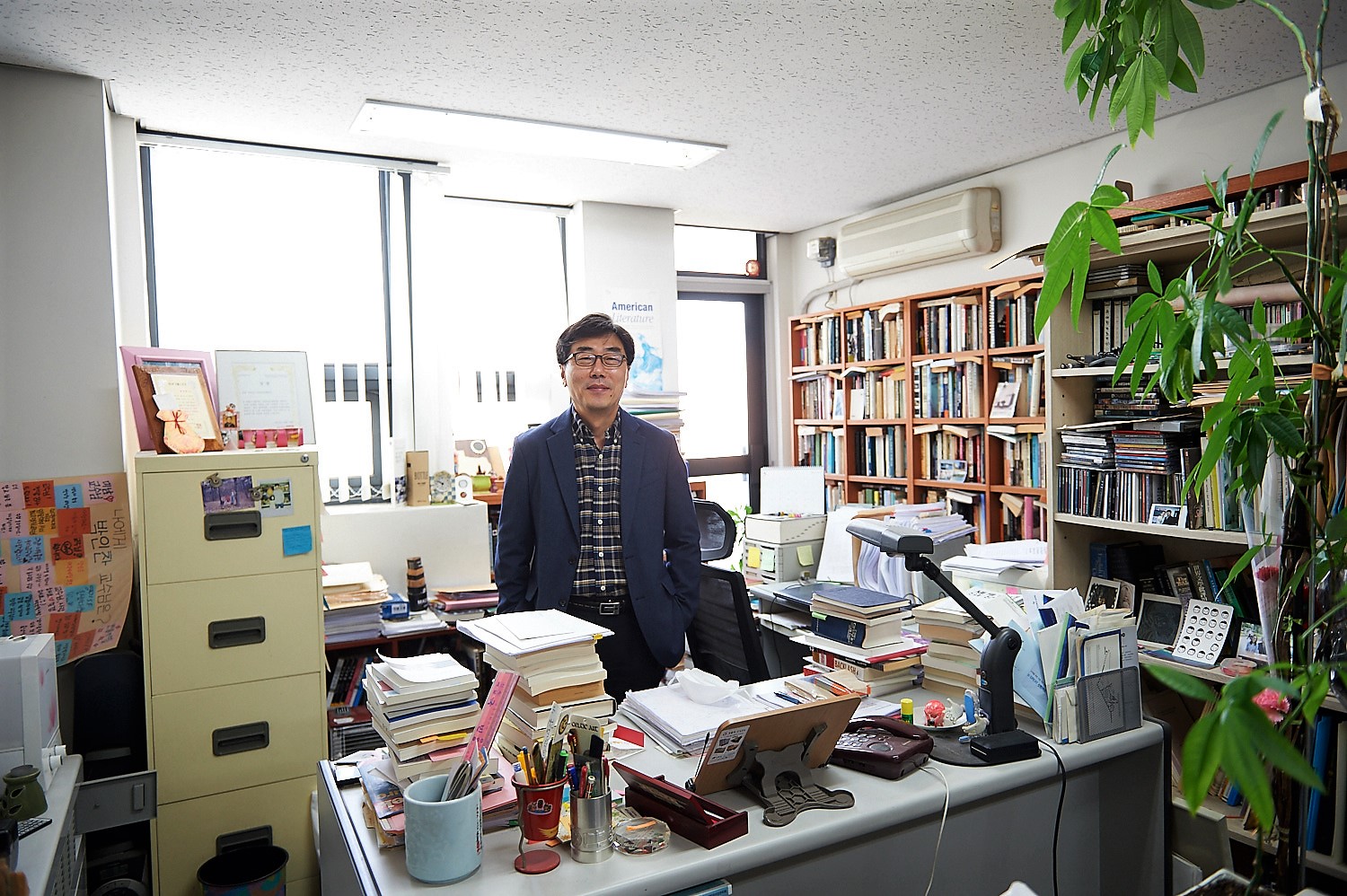[People] Director In-chan Park leads promotion of humanities studies through communication and empathy
- Views 7051
- Writer 커뮤니케이션팀
- 보도일자 2020-07-06
|
Humanities, which studies fundamental problems, thoughts, and cultures related to human beings, is a study that becomes the foundation of broad thinking through moral, ethical, political, and ideological insights. With the selection of the Sookmyung Research Institute of Humanities for the 2020 Humanities Korea Plus (HK+) Project, it is expected to play a big role in concentrating, analyzing, and establishing social hatred issues under the theme of “The Age of Hatred, and Response by Humanities Studies.”
Q. Please briefly introduce the Sookmyung Research Institute of Humanities.
A. The Sookmyung Research Institute of Humanities was established in early 2017. In comparison to the long 114-year history of Sookmyung Women’s University, the Sookmyung Research Institute of Humanities is a newborn. When establishing the institute, we had three keywords in mind: “creativity, traverse, and diffusion.”
Q. What is the definition of humanities?
A. Humanities is the study of understanding and approaching human beings. In my opinion, humanities is a mix of many different studies in general, but more precisely, it is labeled with more definite areas of study, that is, literature, history, and philosophy. However, in essence, I think humanities is a collection of various views of human beings. In other words, humanities is a comprehensive or complex field of study.

Q. The Sookmyung Research Institute of Humanities conducts diverse and experimental activities through humanities. Please tell us about the projects so far and their achievements.
A. In the first year of the establishment of the Sookmyung Research Institute of Humanities, we attracted many large-scale projects supported by the National Research Foundation of Korea. The most representative project was the “2017 Human City Project,” which was a collaboration with Yongsan-gu, where Sookmyung Women’s University is located. Under the theme called “Living Together in Teo‑Mu‑Ni (pattern engraved on the ground), Human City Yongsan,” we held a variety of humanities courses for three years from July 2017 to cover and highlight the historicity, diversity, and expandability of Yongsan. And other convergent projects are also underway.

Q. The Sookmyung Research Institute of Humanities made the final selection for the “2020 Humanities Korea Plus (HK+) Project” offered by the National Research Foundation of Korea and is to receive approximately 8.4 billion won, 1.2 billion won per year, over the next 7 years in funding. Please tell us what kind of efforts were put in to make the final selection.
A. Actually, it is almost impossible for a 3-year-old newborn research institute to be selected for the Humanities Korea Plus (HK+) Project. This was our third attempt, and at every previous evaluation, we were denied for our limits as a newborn institute. We have consistently dealt with representative topics of the Sookmyung Research Institute of Humanities from the beginning through academic conferences, seminars, and special lectures. We aggressively conducted humanities popularization projects, such as the Human City Project, for the past three years, and I think this was our greatest merit. Since the theme “The Age of Hatred, Response by Humanities Studies” is a social issue around the world, I believe it was a comprehensive achievement based on timeliness and necessity of systematic preparation for humanities research that directly contemplate and respond to the issue, and the Institute's willingness to conduct practical studies.

Q. I am curious as to why you chose the theme as “The Age of Hatred, and Response by Humanities Studies.”
A. The word “hate” came to mind when we thought about what is a really important and long-term issue in our society that connects to learning and reality. There are many cases related to hatred, but most responses were one-time or short-term remedies. Dealing with hatred requires a holistic approach from multiple perspectives rather than dealing with immediate incidents that emerge on the surface. That's why we need a comprehensive view of hatred.

Q. Please tell us about the future direction of the Sookmyung Research Institute of Humanities and what needs to be supplemented.
A. We started the Sookmyung Research Institute of Humanities as if we were plating a tree. Just as the trees grow bigger and shade more and more area, I think that if we try to deal with all academic problems, we can increase our contribution. Since the Sookmyung Research Institute of Humanities is public in nature, I think it should become a place of public opinion and a springboard for research and discussions that can contribute to school and society. Linking between majors is very important in order to lead the Sookmyung Research Institute of Humanities in to an institution that can move forward freely away from being self-sufficient in a closed space. In the midst of various crises facing universities in the future, the Sookmyung Research Institute of Humanities can become an alternative. I hope the Sookmyung Research Institute of Humanities can continue to grow as a place to study new academic fields that can contribute to schools and society.




![[People] 숙대 최초의 뇌·인지과학전공 설계자 동서연 교수·김민서 학생 듀오를 만나다!](/_attach/old/dext5editordata/2020/05/20200528_192300755_78091.jpg)